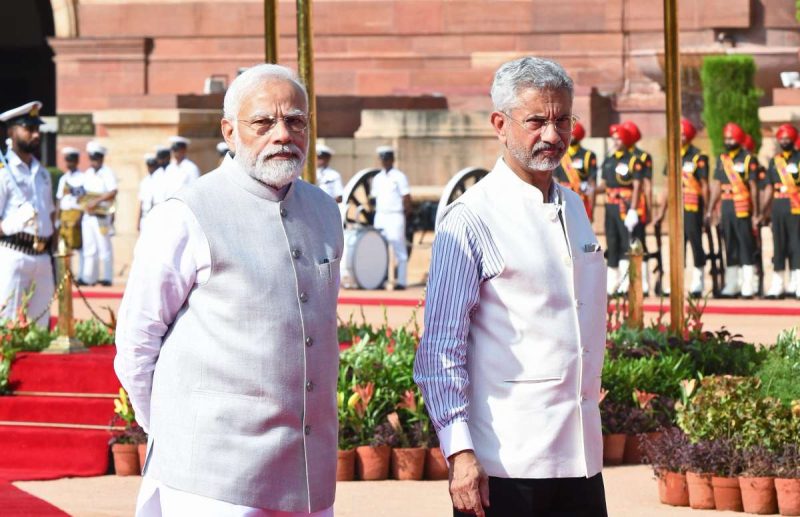An exascale computer can be used for training complex AI models, but also have other uses across science, industry and defence, including modelling weather forecasts and climate projections…reports Asian Lite News
The government is to invest £900m in a cutting-edge supercomputer as part of an artificial intelligence strategy that includes ensuring the country can build its own “BritGPT”.
The treasury outlined plans to spend around £900m on building an exascale computer, which would be several times more powerful than the UK’s biggest computers, and establishing a new AI research body.
An exascale computer can be used for training complex AI models, but also have other uses across science, industry and defence, including modelling weather forecasts and climate projections.
The Treasury said the £900m investment will “allow researchers to better understand climate change, power the discovery of new drugs and maximise our potential in AI.”.
An exascale computer is one that can carry out more than one billion billion simple calculations a second, a metric known as an “exaflops”. Only one such machine is known to exist, Frontier, which is housed at America’s Oak Ridge National Laboratory and used for scientific research – although supercomputers have such important military applications that it may be the case that others already exist but are not acknowledged by their owners. Frontier, which cost about £500m to produce and came online in 2022, is more than twice as powerful as the next fastest machine.
The government acknowledged the recent breakthroughs in large language models, the technology behind chatbots such as OpenAI’s chatGPT – a sensation since its launch last year – and Google’s Bard, which has yet to be released to the public. It said it would establish a taskforce “to advance UK sovereign capability in foundation models, including large language models.”.
Last month, MPs were told the UK needed to invest in large language models or it risked losing out to states such as China and major corporations.
“We think there’s a risk that we in the UK, lose out to the large tech companies, and possibly China, and get left behind … in areas of cybersecurity, of healthcare, and so on. It is a massive arms race that has been around for some time, but the heat has certainly been turned up most recently,” said Adrian Joseph, BT’s chief data and artificial intelligence officer, speaking to the Commons science and technology committee.
“Because AI needs computing horsepower, I today commit around £900m of funding … for an exascale supercomputer,” said the chancellor, Jeremy Hunt.
The Treasury said it would award a £1m prize every year for the next 10 years to the most groundbreaking AI research. The award will be called the Manchester Prize, in memory of the so-called Manchester Baby, a forerunner of the modern computer built at the University of Manchester in 1948.
The government will also invest £2.5bn over the next decade in quantum technologies. Quantum computing is based on quantum physics – which looks at how the subatomic particles that make up the universe work – and quantum computers are capable of computing their way through vast numbers of different outcomes.
ALSO READ-Junior doctors vote for strikes in UK








